Killing the Golden Goose?
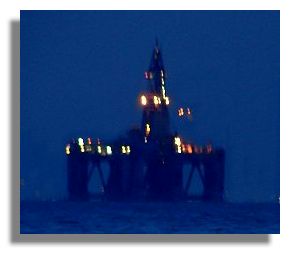 In his Pre-Budget Report delivered this week, Chancellor of the Exchequer Gordon Brown gave an assessment of the UK economic scene and in particular how the government finances are doing. He is now predicting that growth will slump to a 12-year low of 1.75% - he had anticipated 3.5% back in March and was hoping for 2.5% only a few months ago. And government borrowing will be £5 billion higher than planned earlier. The Chancellor blamed world oil prices which were depressing the economy. To help to plug the shortfall, he is imposing an additional tax on the profits made by companies operating in the North Sea which will amount to around £6 billion over the next three years. Voters will breathe a sigh of relief that they are not directly having to pay more taxes and will have little sympathy for oil companies - who have been making sky-high profits as a result of soaring world oil prices. But the move is likely to have an impact on future development and the 265,000 jobs dependent on the North Sea oil industry, much of which is focused on the north-east of Scotland. The last time the government unexpectedly hiked up taxes on oil and gas production, there was an immediate down-turn in investment. The Chancellor will be calculating that even with the increased taxation, the oil companies will still go to the areas where maximum profits can be earned and that will continue to involve the North Sea. But it is being suggested that some oil fields there will be paying 75% tax overall and that the extra tax will be the "death knell" of marginal fields.
In his Pre-Budget Report delivered this week, Chancellor of the Exchequer Gordon Brown gave an assessment of the UK economic scene and in particular how the government finances are doing. He is now predicting that growth will slump to a 12-year low of 1.75% - he had anticipated 3.5% back in March and was hoping for 2.5% only a few months ago. And government borrowing will be £5 billion higher than planned earlier. The Chancellor blamed world oil prices which were depressing the economy. To help to plug the shortfall, he is imposing an additional tax on the profits made by companies operating in the North Sea which will amount to around £6 billion over the next three years. Voters will breathe a sigh of relief that they are not directly having to pay more taxes and will have little sympathy for oil companies - who have been making sky-high profits as a result of soaring world oil prices. But the move is likely to have an impact on future development and the 265,000 jobs dependent on the North Sea oil industry, much of which is focused on the north-east of Scotland. The last time the government unexpectedly hiked up taxes on oil and gas production, there was an immediate down-turn in investment. The Chancellor will be calculating that even with the increased taxation, the oil companies will still go to the areas where maximum profits can be earned and that will continue to involve the North Sea. But it is being suggested that some oil fields there will be paying 75% tax overall and that the extra tax will be the "death knell" of marginal fields.
Time Runs Out for Truants
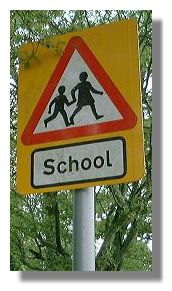 Just over 4% of the number of days that pupils should be at school are lost because of sickness, truancy, or parents taking their children on holidays during term time. While sickness accounts for much of the absenteeism, truancy rates amount to around 20% of the total overall, and in some schools even more than this. The Scottish Executive has been investing in schemes to try to reduce the level of truancy. For example, an experimental automated call system, which texts parents when their children don't show up at school, has reduced truancy rates by as much as 50%. It has also shown that 2% of truants account for 50% of truancy and 10% for 90% of all such absences. More and more schools are now installing the system and it is even being extended to inform parents when pupils arrive late for school.
Just over 4% of the number of days that pupils should be at school are lost because of sickness, truancy, or parents taking their children on holidays during term time. While sickness accounts for much of the absenteeism, truancy rates amount to around 20% of the total overall, and in some schools even more than this. The Scottish Executive has been investing in schemes to try to reduce the level of truancy. For example, an experimental automated call system, which texts parents when their children don't show up at school, has reduced truancy rates by as much as 50%. It has also shown that 2% of truants account for 50% of truancy and 10% for 90% of all such absences. More and more schools are now installing the system and it is even being extended to inform parents when pupils arrive late for school.
Some Rail Fares to Rise Nearly 10%
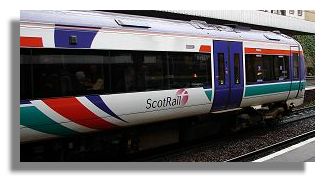 A lot of rail fares in Scotland, including those on commuter routes, are regulated by the Scottish Executive. Increases by First ScotRail have been restricted to raising these by 3.9% from January next year. That's still 1% above the rate of inflation, but is in line with franchise commitment and Scottish Executive and Strategic Rail Authority's guidelines. However, other fares, such as off-peak cheap day-returns and longer distance routes are at the discretion of the rail company. First ScotRail has announced that some of these fares will go up by nearly 10% - the cheap day-return between Edinburgh and Stirling will rise 9.7% and the off-peak fare between Edinburgh and Bathgate will go up 9.5%. The cheap day return between Edinburgh and Glasgow will also rise, by 8.5%. While that may sound a lot, it is actually only from £8.20 to £8.90 for a journey covering some 45 miles. There were lots of criticism of the new fares, but First ScotRail point out that they have been hit by 20/30% increases in fuel costs. And the Edinburgh to Glasgow cheap day-returns have increased by 11% since 1997 - less than half the inflation rate over the period.
A lot of rail fares in Scotland, including those on commuter routes, are regulated by the Scottish Executive. Increases by First ScotRail have been restricted to raising these by 3.9% from January next year. That's still 1% above the rate of inflation, but is in line with franchise commitment and Scottish Executive and Strategic Rail Authority's guidelines. However, other fares, such as off-peak cheap day-returns and longer distance routes are at the discretion of the rail company. First ScotRail has announced that some of these fares will go up by nearly 10% - the cheap day-return between Edinburgh and Stirling will rise 9.7% and the off-peak fare between Edinburgh and Bathgate will go up 9.5%. The cheap day return between Edinburgh and Glasgow will also rise, by 8.5%. While that may sound a lot, it is actually only from £8.20 to £8.90 for a journey covering some 45 miles. There were lots of criticism of the new fares, but First ScotRail point out that they have been hit by 20/30% increases in fuel costs. And the Edinburgh to Glasgow cheap day-returns have increased by 11% since 1997 - less than half the inflation rate over the period.
First New Railway Line for 25 Years
It is 25 years since a new railway line has been opened in Scotland. So the First Minister was on hand to hail the new track which has been laid in South Lanarkshire to link Larkhall with Hamilton, with intermediate stations at Merryton and Chatelherault. The trains then run on into the centre of Glasgow at Queen Street and then out to the north of the city at Milngavie. Service frequency on the already established route is being increased from every 30 minutes to every quarter hour. The new tracks are the first since the relaying of the Argyle line through Glasgow city centre in 1979 - though a few tracks, closed in the 1960s by the British Railways Board chairman Dr Richard Beeching, have been reopened in recent years.
Cold Weather Helps Retailers
 Figures from the British Retail Consortium (BRC) suggest that the recent cold weather has boosted sales in the High Streets in November, with the cold snap helping to increase sales in clothing and food. Even so, it is clear that many retailers have already introduced discounting and sales goods early in December. In recent years the "January Sales" have been starting before Christmas, but this year has already seen multiples and chains in the main Scottish towns and cities plastering windows with notices about sale bargains. The Confederation of British Industry's survey of confidence amongst High Street retailers had fallen to its lowest level in at least 22 years. This year, retailers in Scotland have not suffered to quite the same extent as those down south. The illustration shows Buchanan Street, Glasgow.
Figures from the British Retail Consortium (BRC) suggest that the recent cold weather has boosted sales in the High Streets in November, with the cold snap helping to increase sales in clothing and food. Even so, it is clear that many retailers have already introduced discounting and sales goods early in December. In recent years the "January Sales" have been starting before Christmas, but this year has already seen multiples and chains in the main Scottish towns and cities plastering windows with notices about sale bargains. The Confederation of British Industry's survey of confidence amongst High Street retailers had fallen to its lowest level in at least 22 years. This year, retailers in Scotland have not suffered to quite the same extent as those down south. The illustration shows Buchanan Street, Glasgow.
Plastic Bag Tax Binned?
A Bill in the Scottish parliament, which would have seen the introduction of a tax of 10 pence on every plastic bag issued to customers by retailers, has been sent back to the Environment & Rural Development Committee to address concerns raised by Members of the Scottish Parliament (MSPs). They have been given until next August to respond to the issues raised - which looks like it is being kicked into the long grass. Issues include its economic impact and the potential for job losses. The bill was aimed at reducing the number of plastic bags sent to land-fill sites each year, produce additional finance for local "green" projects and also draw attention to the need to recycle more waste. But the Scottish Retail Consortium and the Carrier Bag Consortium argued that it would be an administrative nightmare and could actually increase waste as there would be an increase in the use of paper bags - which give off greenhouse gases while decomposing if sent to landfill. Some MSPs believe that it is just a "tax on little old ladies doing their shopping." The legislation is being pushed forward by the Liberal Democrats (with support from the Green party, of course) in the coalition government with the Labour party.
More Smokers Trying to Quit
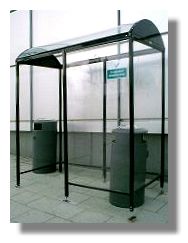 It may be that the ban on smoking in all public buildings in Scotland (to come into effect on 26 March next year) is encouraging more smokers to try to beat their addiction. The Smokeline service, which aims to help smokers to kick the habit, reports that it has received 58,594 calls this year, compared to 55,651 in 2004. A recent survey conducted on behalf of the Scottish Executive suggests that the number of smokers who support the ban has gone up from 19% last May to 33% in August. One problem which the authorities are now wrestling with relates to the shelters outside buildings (see illustration) which are provided by many large organisations, including government agencies. Because they are an "enclosed space", they come under the ban on smoking in public buildings and may have to be removed - or at least half of the panes of glass will need to be removed.
It may be that the ban on smoking in all public buildings in Scotland (to come into effect on 26 March next year) is encouraging more smokers to try to beat their addiction. The Smokeline service, which aims to help smokers to kick the habit, reports that it has received 58,594 calls this year, compared to 55,651 in 2004. A recent survey conducted on behalf of the Scottish Executive suggests that the number of smokers who support the ban has gone up from 19% last May to 33% in August. One problem which the authorities are now wrestling with relates to the shelters outside buildings (see illustration) which are provided by many large organisations, including government agencies. Because they are an "enclosed space", they come under the ban on smoking in public buildings and may have to be removed - or at least half of the panes of glass will need to be removed.
Tilting Trains Up To Speed
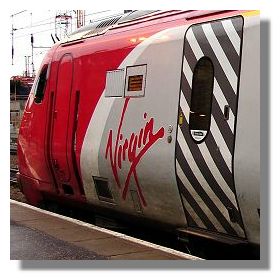 When Richard Branson's VirginTrains "pendolinos" were introduced on the service from London to Glasgow, the tilting trains were supposed to be able to travel at 125mph from September 2002. But delays and financial constraints on the upgrade to the tracks has caused the giant £8 billion West Coast modernisation project to miss a number of target completion dates. But the trains have been given the go-ahead to operate at full speed from next week. That will mean that the London-Glasgow journey times will come down from five hours to four and a half hours. Network Rail, the company responsible for the infrastructure, is now working on further improvements on the line, to increase capacity and reduce journey times further by 2008.
When Richard Branson's VirginTrains "pendolinos" were introduced on the service from London to Glasgow, the tilting trains were supposed to be able to travel at 125mph from September 2002. But delays and financial constraints on the upgrade to the tracks has caused the giant £8 billion West Coast modernisation project to miss a number of target completion dates. But the trains have been given the go-ahead to operate at full speed from next week. That will mean that the London-Glasgow journey times will come down from five hours to four and a half hours. Network Rail, the company responsible for the infrastructure, is now working on further improvements on the line, to increase capacity and reduce journey times further by 2008.
More Air Routes from Scotland
The government-backed Route Development Fund has helped in establishing two new air services from Scotland. Centralwings, a subsidiary of Polish airline LOT, already operates a service between Edinburgh and Warsaw and is now to expand that to include direct flights from the Scottish capital to Gdansk and Katowice, both in Poland. The Route Development Fund supports new air links where airlines can demonstrate the services will have a direct economic benefit to Scotland. The flights must involve regularly scheduled services and must not undermine existing flights. Finance is aimed at assisting in the start-up and early stages of new routes when passenger numbers have not built up. Budget airline Ryanair has also unveiled new flights to Spain and France, with direct flights from Prestwick to Marseille and Reus, near Barcelona, starting in February next year. Ticket prices start from around £7 one way. Ryanair already flies to a number of European cities, including Brussels, Paris, Frankfurt and Oslo
"Genuine Trophy Asset" For Sale
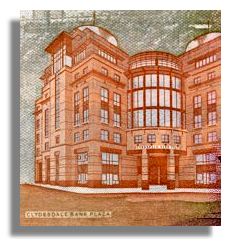 The Glasgow-based Clydesdale Bank pulled off an amazing coup when they leased part of a prestigious new office building in the heart of Edinburgh's new financial centre. The bank paid for the naming rights to have it called "Clydesdale Bank Plaza" instead of its original name of Exchange Plaza. The bank was so pleased with their move, that they incorporated the building into a commemorative bank note marking the Commonwealth Heads of Government Meeting in Edinburgh in 1997. Now the building is up for sale and is being described as a "genuine trophy asset". In addition to Clydesdale Bank, the 100,000 square feet building houses the HQ of oil and gas explorer Cairn Energy, long established Edinburgh law firm Burness and some of the operations of financial services group State Street. Insurance giant Standard Life has its HQ on the opposite corner and Scottish Widow's life assurance company is not far away either.
The Glasgow-based Clydesdale Bank pulled off an amazing coup when they leased part of a prestigious new office building in the heart of Edinburgh's new financial centre. The bank paid for the naming rights to have it called "Clydesdale Bank Plaza" instead of its original name of Exchange Plaza. The bank was so pleased with their move, that they incorporated the building into a commemorative bank note marking the Commonwealth Heads of Government Meeting in Edinburgh in 1997. Now the building is up for sale and is being described as a "genuine trophy asset". In addition to Clydesdale Bank, the 100,000 square feet building houses the HQ of oil and gas explorer Cairn Energy, long established Edinburgh law firm Burness and some of the operations of financial services group State Street. Insurance giant Standard Life has its HQ on the opposite corner and Scottish Widow's life assurance company is not far away either.
English Whisky!
It does seem an unlikely (if not sacrilegious) combination - whisky made in England. Japan and India, perhaps, but surely not England? But Andrew Currie, a Scottish entrepreneur, who launched the Isle of Arran distillery at Lochranza ten years ago, has decided to build another plant at Stavely, near Kendal, in the English Lake District. It will be the first such distillery south of the border for at least 150 years. The water of (English) life could start to be flowing by next easter, reaching the market five years later. It will be labelled Lakeland Single Malt and will be made using the same methods as those in Scotland. Barley is even being sourced from Scotland, but the water will be from the river Kent, one of England's fastest flowing waterways. Production will amount to only 25,000 litres of whisky in the first year and will increase only slightly after that.
"Tam the Gun" Remembered
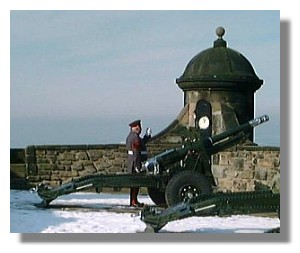 The memory of staff sergeant Thomas McKay MBE, who became famous as "Tam the Gun" as he fired the ceremonial gun at 1pm each day on the battlements of Edinburgh Castle for 26 years, is to live on as the name of a new GNER electric locomotive. Tam died last month after a short illness and Tam's wife Joyce performed the naming ceremony at Waverley Station, Edinburgh, this week. In addition to being Edinburgh's district gunner and an enthusiast for the One O'Clock Gun, Tam was also keen on railways, so it is appropriate that the specially-named train will keep his name alive as it speeds along the tracks between Scotland and England.
The memory of staff sergeant Thomas McKay MBE, who became famous as "Tam the Gun" as he fired the ceremonial gun at 1pm each day on the battlements of Edinburgh Castle for 26 years, is to live on as the name of a new GNER electric locomotive. Tam died last month after a short illness and Tam's wife Joyce performed the naming ceremony at Waverley Station, Edinburgh, this week. In addition to being Edinburgh's district gunner and an enthusiast for the One O'Clock Gun, Tam was also keen on railways, so it is appropriate that the specially-named train will keep his name alive as it speeds along the tracks between Scotland and England.
Jordanhill Campus to Close
Strathclyde University has confirmed that it is planning to close its teacher-training college at Jordanhill in the west-end of Glasgow by 2010 and centralise the department in a new building in its sprawling city-centre campus instead. Jordanhill is also the location of music, sports sciences and social work courses. Consideration had been given to refurbishing the ageing buildings, which were established in 1921. It is likely that the site will eventually be sold for house building - though local residents are likely to fight for at least the retention of the 15 acres of open spaces and playing fields.
End in Sight for West Highland Way
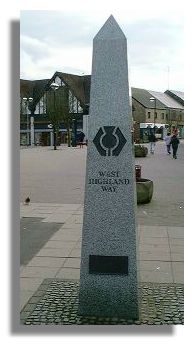 Tens of thousands of hill walkers, who have tramped along the 95-mile West Highland Way over the last 25 years from Milngavie, just to the north of Glasgow, to Lochaber near Fort William, have considered the end of their trek to be at Nevis Bridge, at the entrance to Glen Nevis. But that is almost a mile outside of Fort William, the "capital" of Lochaber. While many will have gone on into the town, local business people are trying to drum up support for a monument in the town itself to mark the official end of the walkway - just as there is in Milngavie. It does seem a logical move - most descriptions of the West Highland Way describe it as running to Fort William, not Nevis Bridge. But of course there will have to be lengthy discussions before any change is made.
Tens of thousands of hill walkers, who have tramped along the 95-mile West Highland Way over the last 25 years from Milngavie, just to the north of Glasgow, to Lochaber near Fort William, have considered the end of their trek to be at Nevis Bridge, at the entrance to Glen Nevis. But that is almost a mile outside of Fort William, the "capital" of Lochaber. While many will have gone on into the town, local business people are trying to drum up support for a monument in the town itself to mark the official end of the walkway - just as there is in Milngavie. It does seem a logical move - most descriptions of the West Highland Way describe it as running to Fort William, not Nevis Bridge. But of course there will have to be lengthy discussions before any change is made.
Pipe Down!
In recent years, Anti-Social Behaviour Orders ( ASBO ) have been introduced. These allow the police and/or a local authority to stop a young person from behaving in a manner that causes distress or harassment in a neighbourhood. If they do not comply with the order, they can be prosecuted. Intended for rowdy or abusive youngsters, some local authorities have adopted the procedures enthusiastically. But this week Renfrewshire Council may have been surprised at the media publicity which arose when they applied an ASBO to stop a young musician from playing his bagpipes. Ironically, 13-year-old Andrew Caulfield is far from being a typical "yob". He has been involved in a national initiative to encourage youngsters to take up the pipes and regularly gives up his time to teach them how to play. He also played the pipes at the Paisley Cenotaph on Remembrance Sunday and plays at retirement homes and other functions. But his neighbours in a well-to-do area complained to the council and they slapped the ASBO on him. He recently adopted a set of pipes that produce less sound, but the council had already taken their measurements of noise levels and would not reconsider.
Fire and Brimstone Alive and Well
 In days gone by, the clergy used to keep their flock on the straight and narrow with the threat of fire and brimstone. In recent years, the threat of perdition was heard much less from the pulpit in many Christian denominations. But a recent survey, by a lecturer in practical theology at St Andrews University, has found that more than a third of Scotland's clergy still believe in the literal existence of Hades as a place where lost souls will still suffer mental anguish after death. But your chances of risking the everlasting bonfires does have an element of a postcode lottery - ministers who believe in eternal damnation are thicker on the ground in the Highlands and Islands and the west coast of Scotland - and much less so in the east and south of the country. The strong presence of Presbyterian groups in the Highlands and islands may well have influenced the statistics.
In days gone by, the clergy used to keep their flock on the straight and narrow with the threat of fire and brimstone. In recent years, the threat of perdition was heard much less from the pulpit in many Christian denominations. But a recent survey, by a lecturer in practical theology at St Andrews University, has found that more than a third of Scotland's clergy still believe in the literal existence of Hades as a place where lost souls will still suffer mental anguish after death. But your chances of risking the everlasting bonfires does have an element of a postcode lottery - ministers who believe in eternal damnation are thicker on the ground in the Highlands and Islands and the west coast of Scotland - and much less so in the east and south of the country. The strong presence of Presbyterian groups in the Highlands and islands may well have influenced the statistics.
Chips and Cheese - a Hangover Cure?
Many Scots are always interested in hearing about cures for a hangover... Irn Bru, the locally produced fizzy drink, for example, became popular because it gained a reputation for being a useful pick-me-up on the morning after the night before. Now health experts in Grampian have pointed out that people who have been out drinking should make a point of eating while they are out drinking - and a portion of chips (French fries in more refined circles) with a sprinkling of cheese on top is recommended as a snack on the way home. The advice is being given in advance of the expected 20,000 revellers who will hit the centre of Aberdeen each weekend in the run-up to Christmas. The public health co-ordinator says that although it may sound unorthodox advice, the combination is the best way of absorbing alcohol. Whether it will replace deep-fried Mars bars remains to be seen... And while it may help to get the alcohol out of the system, it could also send cholesterol levels soaring, to the detriment of health.
Landowners are Wheelie Bin Laden
 Scottish Borders Council has calculated that its refuse collection vehicles and staff travel an extra 12,000 miles a year to collect the rubbish put out by the landed gentry, lairds and lords in their area. For years, ordinary householders have had to haul their "wheelie bins" to the street so that their rubbish can be collected. Recently, we have been encouraged to lug large boxes of waste paper, glass, tin cans and plastic to the pavement as well, in order to save the planet. Meantime, it appears that the refuse lorries have been driving along the sometimes long carriageways from the main road to stately homes. But a council official accompanied the vehicles and was astonished to find how long it took to go up and down the driveways. So from next April, the bins will have to be left beside the sometimes impressive gateways of the private estates - saving the council taxpayers (it is estimated) £17,000 a year.
Scottish Borders Council has calculated that its refuse collection vehicles and staff travel an extra 12,000 miles a year to collect the rubbish put out by the landed gentry, lairds and lords in their area. For years, ordinary householders have had to haul their "wheelie bins" to the street so that their rubbish can be collected. Recently, we have been encouraged to lug large boxes of waste paper, glass, tin cans and plastic to the pavement as well, in order to save the planet. Meantime, it appears that the refuse lorries have been driving along the sometimes long carriageways from the main road to stately homes. But a council official accompanied the vehicles and was astonished to find how long it took to go up and down the driveways. So from next April, the bins will have to be left beside the sometimes impressive gateways of the private estates - saving the council taxpayers (it is estimated) £17,000 a year.
Weather in Scotland This Week
 The start of the week saw average maximum temperatures for the time of year of around 7/8C (45/46F), but Tuesday was the only day with an appreciable amount of sunshine - Glasgow recorded 5.8 hours that day. On Wednesday and Thursday, however, the thermometer dipped to only 4/6 C at midday and there was a sharp overnight frost. Sunshine was again limited, with the east and north-east faring best. The cold spell did not last, however, as a band of rain and cloud came in from the Atlantic. Glasgow and Edinburgh reached 9C (48F) and the outlook is for even milder weather, with temperatures getting into double figures on the centigrade scale (low 50s in fahrenheit).
The start of the week saw average maximum temperatures for the time of year of around 7/8C (45/46F), but Tuesday was the only day with an appreciable amount of sunshine - Glasgow recorded 5.8 hours that day. On Wednesday and Thursday, however, the thermometer dipped to only 4/6 C at midday and there was a sharp overnight frost. Sunshine was again limited, with the east and north-east faring best. The cold spell did not last, however, as a band of rain and cloud came in from the Atlantic. Glasgow and Edinburgh reached 9C (48F) and the outlook is for even milder weather, with temperatures getting into double figures on the centigrade scale (low 50s in fahrenheit).
"Colour Supplement"
This week's online photographs taken in Scotland this week to show the current season and its flora and fauna include Castle Simple Loch just after the sunset, cotoneaster berries, an acrobatic grey squirrel, a male Goosander, Christmas festivities and Ferris Wheel in Princes Street Gardens, Edinburgh. See Colour Supplement.
|


The Scottish Snippets Newsletter in its original format began in April 1997 and continued in an unbroken series for 591 issues. Although no longer produced in that format there is now a regular update on the new and updated pages on the Rampant Scotland site and also "Scottie's Diary" on an intermittent basis, To receive this, kust send an e-mail to Scottie with "Subscribe Newsletter" in the subject line.
 Historical Affairs - Topical Items from Scotland's Past
Historical Affairs - Topical Items from Scotland's Past


